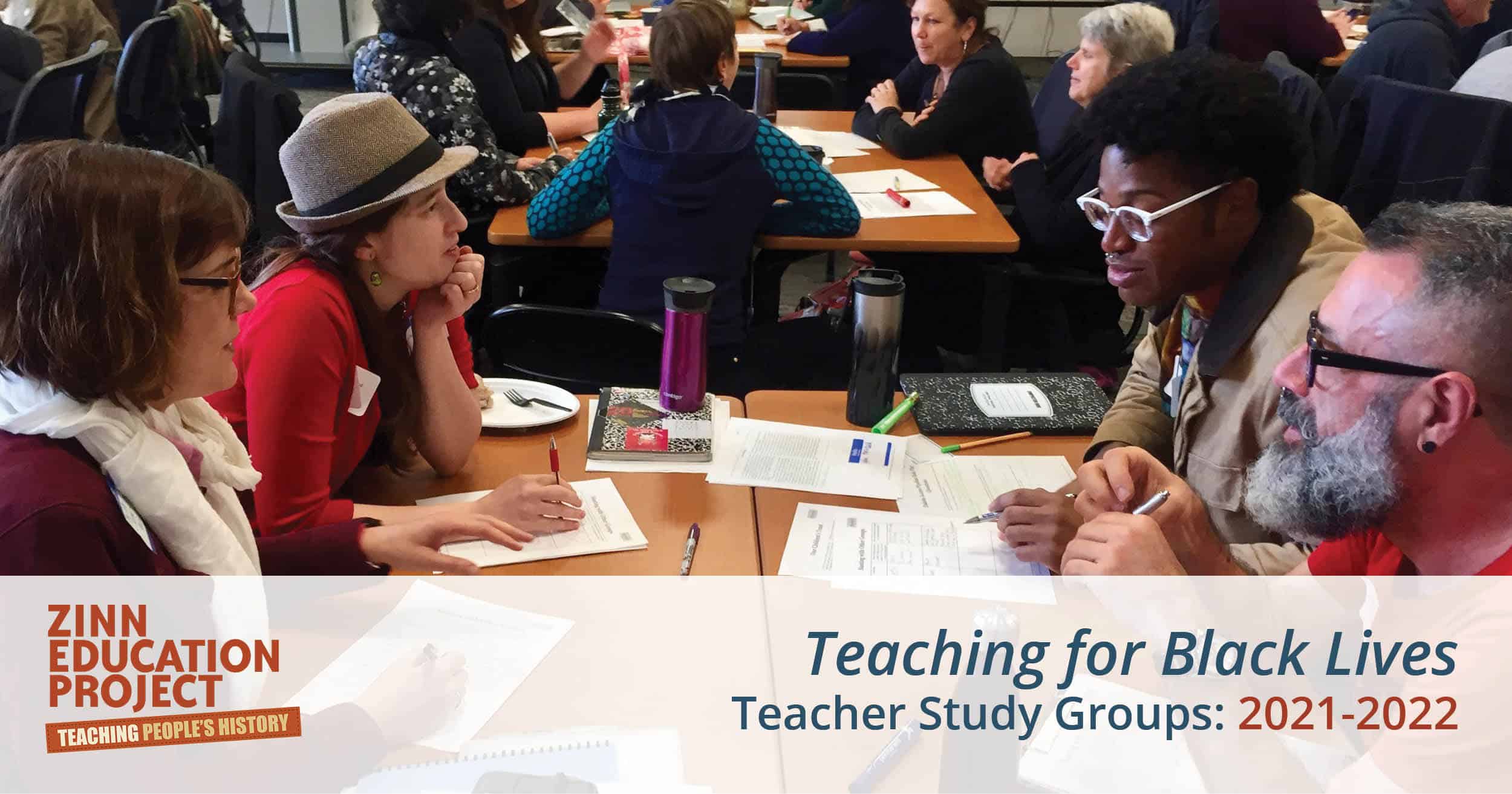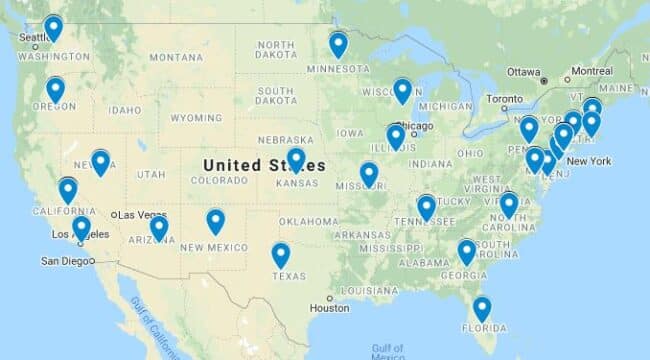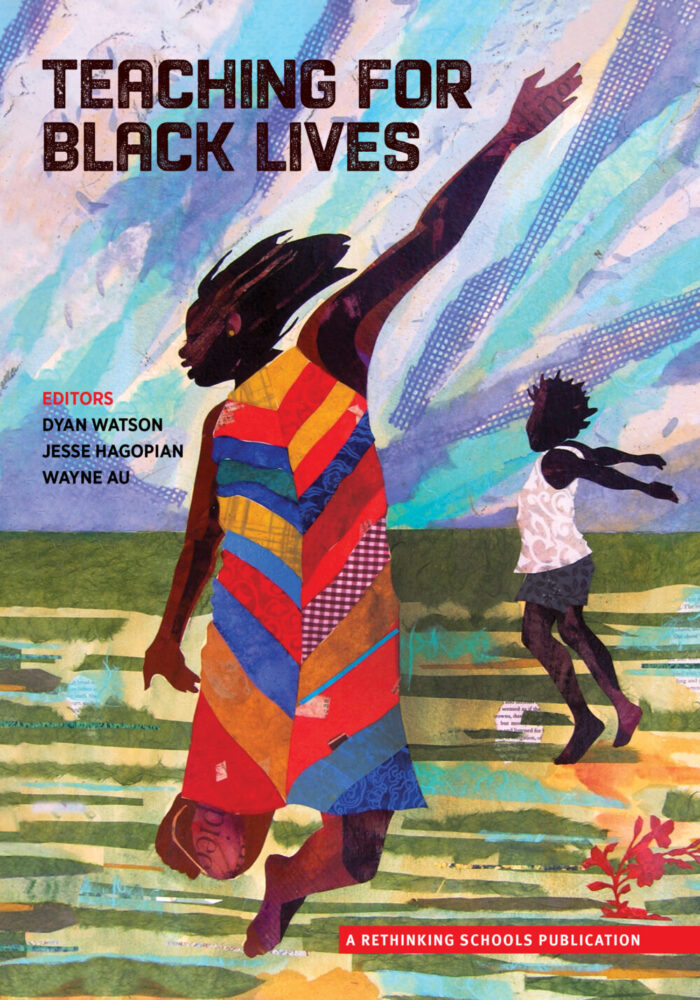
The Zinn Education Project is excited to announce that a generous group of donors funded another round of Teaching for Black Lives Study Groups, for the 2021-2022 school year.
This is a free professional learning opportunity. Each study group receives:
- Teaching for Black Lives book for each participant (up to 20) and Teaching for Black Lives Study Guide
- Rethinking Schools subscription for each participant (up to 20)
- Introductory workshop featuring one or more editors of Teaching for Black Lives
- Access to several invitation-only webinars and workshops (panel discussions on current events, curriculum workshops, campaign planning)
- Closing event featuring one or more editors of Teaching for Black Lives
- Access to a network of other teacher study groups across the United States
The groups for the 2021-2022 school year have been selected. They are in the locations indicated by the map below.

If more funds are raised, we will open the application for the next school year.
The structure and format can vary (see suggestions below) according to the goals of the group.
Goals and Format Suggestions
You might adapt and/or combine these ideas to create a plan that is just-right for your group.
 School- or district-based book study
School- or district-based book study
- Regular meetings to discuss chapters and create individual and/or collective action plans around each of the book’s five sections.
- Example: The 2020-2021 Fort Hamilton High School T4BL study group in Brooklyn met on a monthly basis. They rotated facilitation duties between members, and developed action items based on their reading and discussion from each meeting. They are using these action items to inform their ongoing work in existing DEI committees.
Curriculum work
- Convene a group of educators to work on designing a course, unit of study, or curricular framework that “teaches for Black lives.” Use the book as an analytic framework and some of its lessons as models for your own work.
- Example: In Boston, an existing educator collective working on creating an ethnic studies curriculum for Boston Public Schools applied for a 2020-2021 Teaching for Black Lives Study Group grant to help them write a Black Studies curriculum. They met multiple times over the course of the year, using lessons from Teaching for Black Lives as inspiration and foundation for their own curricular work, and designed several Black Studies units for different grade levels.
Visioning and professional development
- Host a study group of school leaders to inform your school’s vision for the future and plans for professional development for your school and/or district.
- Example: In the 2020-2021 school year, the Superintendent’s cabinet of North Shore Public Schools study group.
Participate in Black Lives Matter at School
- Use the book to guide a working group committed to building toward or upon your school or district’s participation in the Black Lives Matter at School’s Year of Purpose and Week of Action.
- Example: The 2020-2021 Richmond, California study group used their monthly discussions of chapters of the book to build plans for their first-time participation in the BLM at School’s Week of Action. They developed a suite of lessons and short videos that were used in classrooms to teach about the 13 Principles.
Other
The ideas above are suggestions. We welcome other proposals with other ideas and formats.
Study Group Expectations
Before applying, please carefully read the following expectations.
- Your group has a clear connection to K-12 education
- You are willing to be responsive and timely in providing our office staff the names, emails, and addresses of all your group members in a timely manner to facilitate shipping of books and magazine subscriptions.
- You will hold regular (a minimum of five) meetings based on a collective reading of Teaching for Black Lives and a recent issue of Rethinking Schools magazine
- You will provide the Zinn Education Project at least three updates (after first convening, mid-year, end of year) on your study group’s work using a survey we will provide.
- If possible, you will share photos, videos, and other artifacts that reflect your group’s work
- All study group members will attend at least three invitation-only events, including the national welcoming event and closing event (with options)
- You will complete an end-of-year evaluation
The applications are closed.
If funding becomes available to support more sites, we will open it up again for next school year.






Twitter
Google plus
LinkedIn